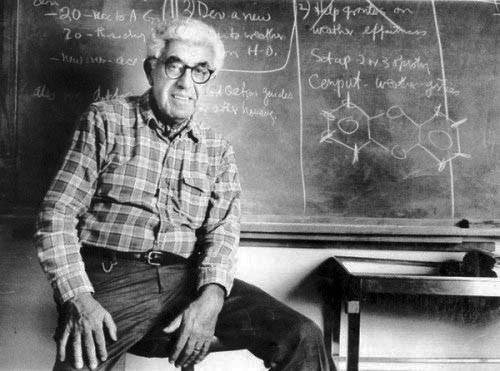Thanks to Simon Butler for these links to articles honoring and remembering Barry Commoner.
Climate & Capitalism’s tribute to Commoner was published yesterday.
Scientist, Candidate and Planet Earth’s Lifeguard
New York Times
“Dr. Commoner was a leader among a generation of scientist-activists who recognized the toxic consequences of America’s post-World War II technology boom, and one of the first to stir the national debate over the public’s right to comprehend the risks and make decisions about them.”
Remembering Barry Commoner
The Nation
“Commoner viewed the environmental crisis as a symptom of a fundamentally flawed economic and social system. A biologist and research scientist, he argued that corporate greed, misguided government priorities and the misuse of technology accounted for the undermining of “the finely sculptured fit between life and its surroundings.”
Barry Commoner, scientist and influential environmentalist, dies at 95
Washington Post
“Time magazine put Dr. Commoner on its cover in 1970, saying he ‘has probably done more than any other U.S. scientist to speak out and awaken a sense of urgency about the declining quality of life’.”
The greatest environmentalist of the 20th century
Greenpeace USA
“Ralph Nader calls Barry Commoner ‘the greatest environmentalist of the 20th century.’ It’s hard to argue with that.”
RIP, Barry Commoner: A scientist who wasn’t afraid to make some noise
Grist
“In 1993, Commoner explained to the Chicago Tribune that “the Atomic Energy Commission turned me into an environmentalist.” He had raised alarms about the levels of radioactive material in the atmosphere after atomic bomb tests, but officials brushed him off. From that point on, he would become a vocal advocate for people’s right to know about toxins in the environment and in the products they bought.”
Barry Commoner’s Legacy
The American Prospect
“Commoner believed in addressing multiple issues, such as racism, sexism, war, and—most importantly—the failings of capitalism at the same time as environmentalism because they were, and still are, all related issues of a larger central problem.”
Commoner in Context
Michael Egan in History for a Sustainable Future
“My instinct is that we will hear the same references over and over again in the coming days and weeks: Commoner introduced the Four Laws of Ecology, he ran for President in 1980, and he was called (by TIME magazine in 1970) ‘the Paul Revere of Ecology.’ All true, but I should like to stress a much more fundamental point: Commoner invented the science information movement”
Barry Commoner’s Uncommon Life
Andrew Revkin, NYT/Dot Earth.
Quoting Michael Egan: “He should be in any top five list of American environmental leaders, up there with Rachel Carson, Aldo Leopold, John Muir, and Alice Hamilton. It may be heretical to say it, but I think he’s a more important figure in American environmentalism than Rachel Carson.”
Barry Commoner and Our Interconnected World
Legal Planet
“You might say that, even when Commoner first wrote, it was clear that the world had a complex set of links. Today, however, we are beginning to have glimpses of the wiring diagram.”
Find more Barry Commoner links in Simon Butler’s blog Climate Change Social Change.




The greatest environmentalist, and utterly invisible in the MSM, except as an obit recipient. Tells you something important…
I assume MSM = Main Stream Media? If so, your comment is broadly correct , especially in the past two decades. But in 1970 he was pictured on the front cover of Time magazine and his work was discussed in many other publications. As late as 1991, his book Making Peace With the Planet was favorably reviewed in the New York Times by no less a luminary than Stephen Jay Gould. So although the media mostly ignored Barry Commoner, as they almost always do with radical critics of capitalism, there were times when his message broke through.